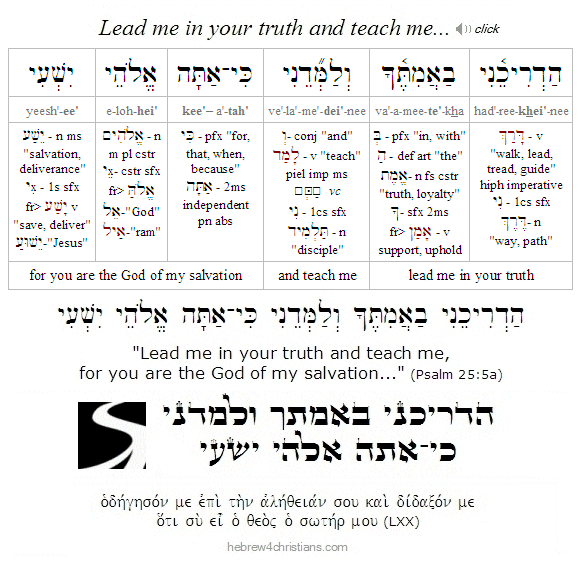|
This week's Torah portion centers around a strange character named Balaam (בִּלְעָם) who attempted to manipulate the LORD for his own twisted purposes.
Interestingly, the Talmud mentions that Moses wrote a separate book called the "Book of Balaam" (Sota 5), a work that presumably tells the story of Balaam in greater detail than the Torah portion provides (Bava Basra 14b-15a). This non-canonical book did not survive over the centuries, much like other works mentioned in the Tanakh (such as the Book of Yashar (Josh. 10:13, 2 Sam. 1:18), the Book of the Acts of Solomon (1 Kings 11:41), the Book of the Chronicles of the Kings of Israel (1 Kings 14:19, 14:29), the Book of Nathan the prophet (1 Chron. 29:29), etc). But notice that this implies that not everything Moses wrote was considered Scripture (since the book was rejected from inclusion in the Jewish canon).
Jewish tradition generally considers Balaam to be an Aramean prophet with the true gift of nevuah (נְבוּאָה, prophecy), although (paradoxically) he was an adversary of the LORD and an enemy of the children of Israel. The midrash (Bamidbar Rabbah 20) maintains that Balaam was "one who was [potentially] as great as Moses himself," but since he abused his spiritual gifts, he was judged and came to ultimate ruin. Instead of submitting himself to the truth and willingly blessing Israel, Balaam turned away from his true purpose, and "the portion of the Book he was meant to write (i.e., the "Book of Balaam") was decreed to be written by Moses instead." The tale of Balaam, then, is a sober warning to us all.

Balaam's legacy is with us today. The New Testament Scriptures speak of "the way of Balaam, the son of Beor, who loved gain from wrongdoing" (2 Pet. 2:15), "Balaam's error" (Jude 1:11), and "the teaching of Balaam, who taught Balak to put a stumbling block before the sons of Israel" (Rev. 2:14). Note that the doctrine of Balaam is associated with the licentious "doctrine of the Nicolatians" who "conquered the people" [νικος + λαος] in order to pursue their own ecclesiological/spiritual lusts (Rev. 2:6,14-15).
What is the "way of Balaam" or Balaam's error? Well, though Balaam appeared to follow God's instructions, his inner attitude was actually one of covetousness that resulted in a subversive hostility to God's expressed desire and plan. Balaam was therefore double minded, antagonistic to the way of truth, and therefore literally insane (see 2 Pet. 2:16). When Balaam told Balak's emissaries that he could "only speak what God put in his mouth," he was being literal, not moral... This is revealed in the fact that he was willing to try three times to curse God's purpose, but every time God thwarted his evil intent (Josh. 24:9-10). Despite God's dramatic intervention in his life, Balaam was unrepentant and defiant, and later succeeded in corrupting Israel by devising a scheme to tempt the men of Israel to commit fornication (Num. 31:16, Rev. 2:14-15).
Balaam was a hireling, a spiritual prostitute who wanted to sell his services. He was in possession of charisma which he used to seduce others into disobedience. He was paid for exercising his gifts without regard for the truth (Num. 22:7, Deut. 23:4-5, 2 Pet. 2:15). As Yeshua said, "You cannot serve God and mammon" (Matt. 6:24).
The tragic story of Balaam warns us to check our motives. By itself, the study of Scripture is never enough -- even if we take great pains to properly understand its meaning. Our heart attitude is definitive. Our will to serve God in the truth determines our way in this life. "If anyone wills to do His will he will know of the teaching..." (John 7:17). We cannot rightfully use the Scriptures to justify our ideas about God or own pet theological doctrines. We cannot manipulate God in order to serve our own theological visions... We must humble ourselves; we must make the effort to honestly listen; and we must be willing to surrender to the truth. It is the love of the truth that brings salvation to us (2 Thess. 2:10-12), not gaining power through religious knowledge or passing ourselves off as religious authorities....
When we rebel against God's will in our lives, we are inviting disaster. If we get into "vain repetitions" before the LORD, He might take us down a path that reveals why His will is best, despite our personal "vision" or preferences. Inevitably, coming up against God like this is dangerous and leads to various forms of madness. Making a pretense of "hearing from God" only what you want to hear leads to delusional thinking, hardening of the heart, perversity of the will, and eventual self-destruction. God will never allow us to use His Word to justify our own lusts.
Hebrew Lesson
Psalm 25:5a reading (click):
May God help each of us to honestly love the truth....
|




